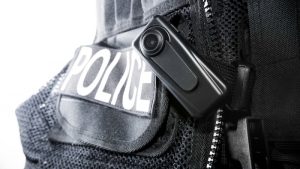A bipartisan bill introduced by Sens. Brian Schatz, D-Hawaii, Thom Tillis, R-N.C., John Cornyn, R-Texas, and Richard Blumenthal, D-Conn., seeks to improve cybercrime data collection and give Federal law enforcement more tools to stop online crime.
A handful of Democratic legislators have sent a letter to the Department of Justice (DoJ) seeking answers to what steps the agency takes to ensure predictive policing technology is effective, and whether it tests for bias and requires transparency in algorithms used in the technology.
The Department of Justice (DoJ) announced that it will allow state, local, territorial, and tribal task force officers to use body-worn cameras on Federal task forces nationwide.
FBI Director Chris Wray said on Sept. 16 that his agency hasn’t seen any attempts thus far by foreign actors to attack the U.S. voter registration databases in the run-up to the November elections, or any attempt to tamper with vote counts.
The City of San Francisco became the first city in the United States to ban law enforcement, as well as other city agencies, from using facial recognition technologies when its Board of Supervisors on Tuesday approved the Stop Secret Surveillance Ordinance.
President Donald Trump signed the Providing Resources, Officers, and Technology to Eradicate Cyber Threats to (PROTECT) Our Children Act of 2017, which reauthorizes the National Internet Crimes Against Children Task Force Program through 2022.
Technology can play a vital role in keeping police officers safe while on the job. During National Police Week, a week dedicated to honoring the service and sacrifice of U.S. law enforcement officers, 21st Century State & Local takes a look at the newest technologies available to law enforcement around the country.
Axon launched a new law enforcement initiative this month. The provider of connected law enforcement technologies will equip every police officer in the United States with a body camera–for free. Axon will also provide supporting hardware, software, data storage, training, and support to police departments free of cost for one year.
L8NT recently launched a new software product to help law enforcement agencies recover stolen Wi-Fi devices.
Active shooter situations are becoming increasingly common, with 142 school shootings in the United States since 2013. 21st Century State & Local talked to four active shooter solution providers to understand what technology is available to schools and colleges and the importance of deploying technology before there is an incident.













